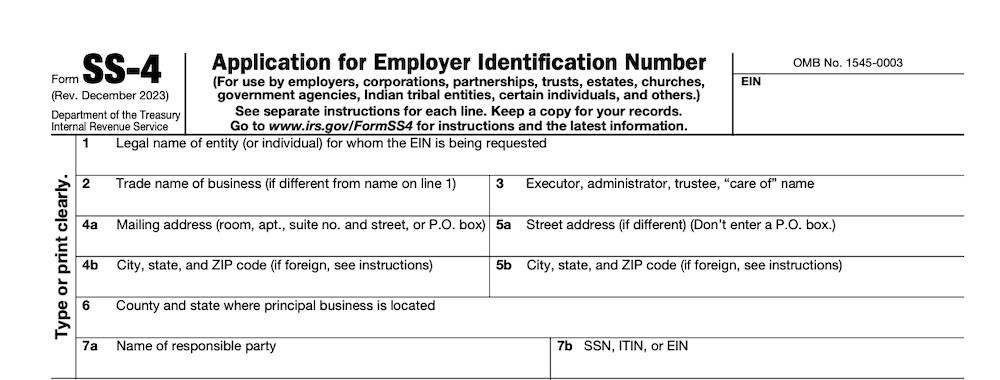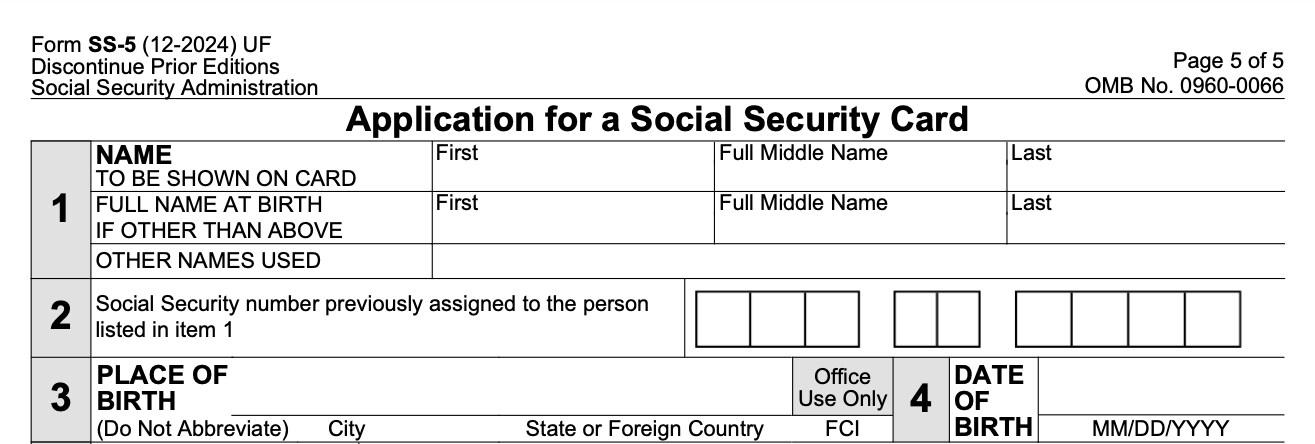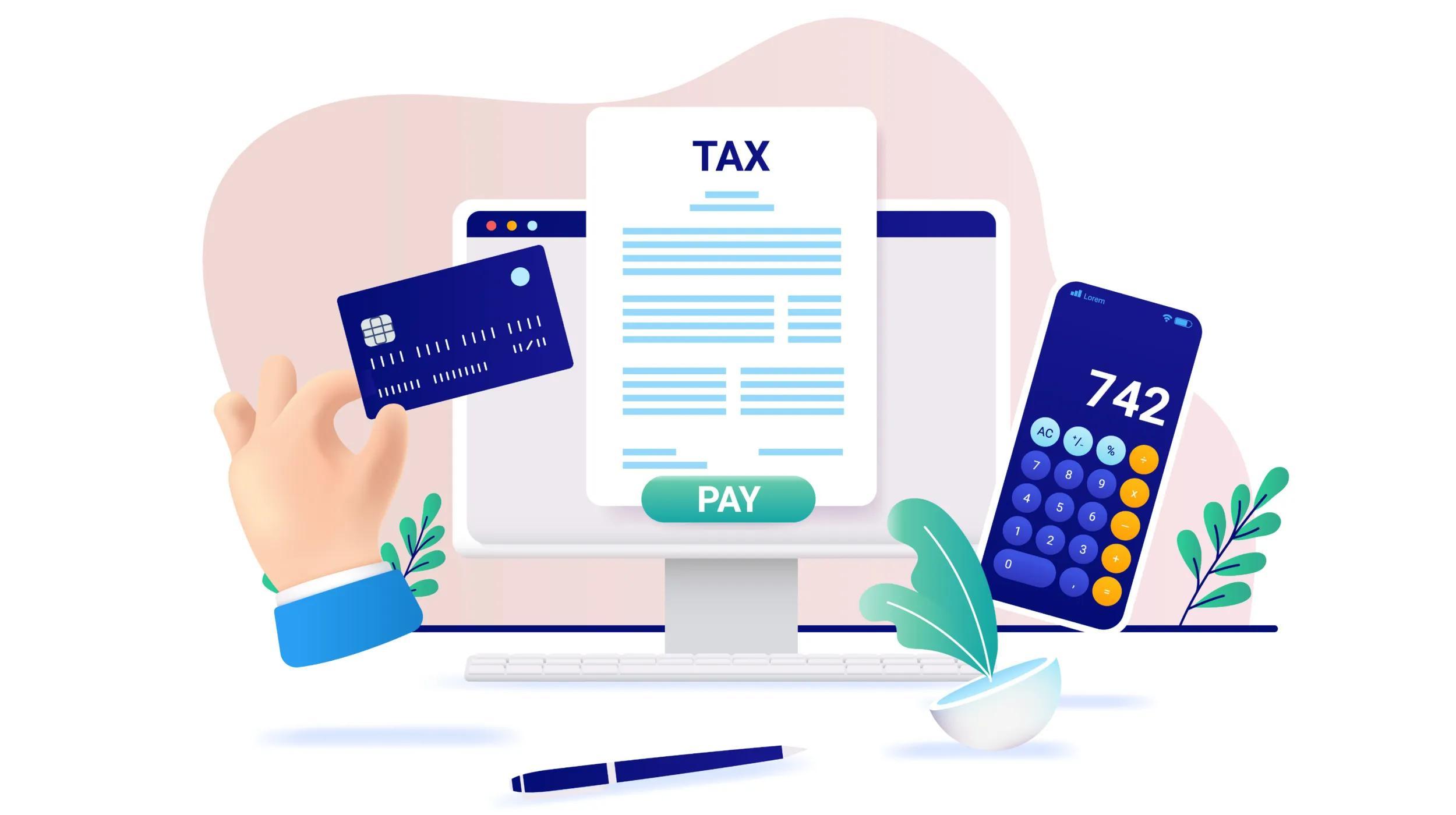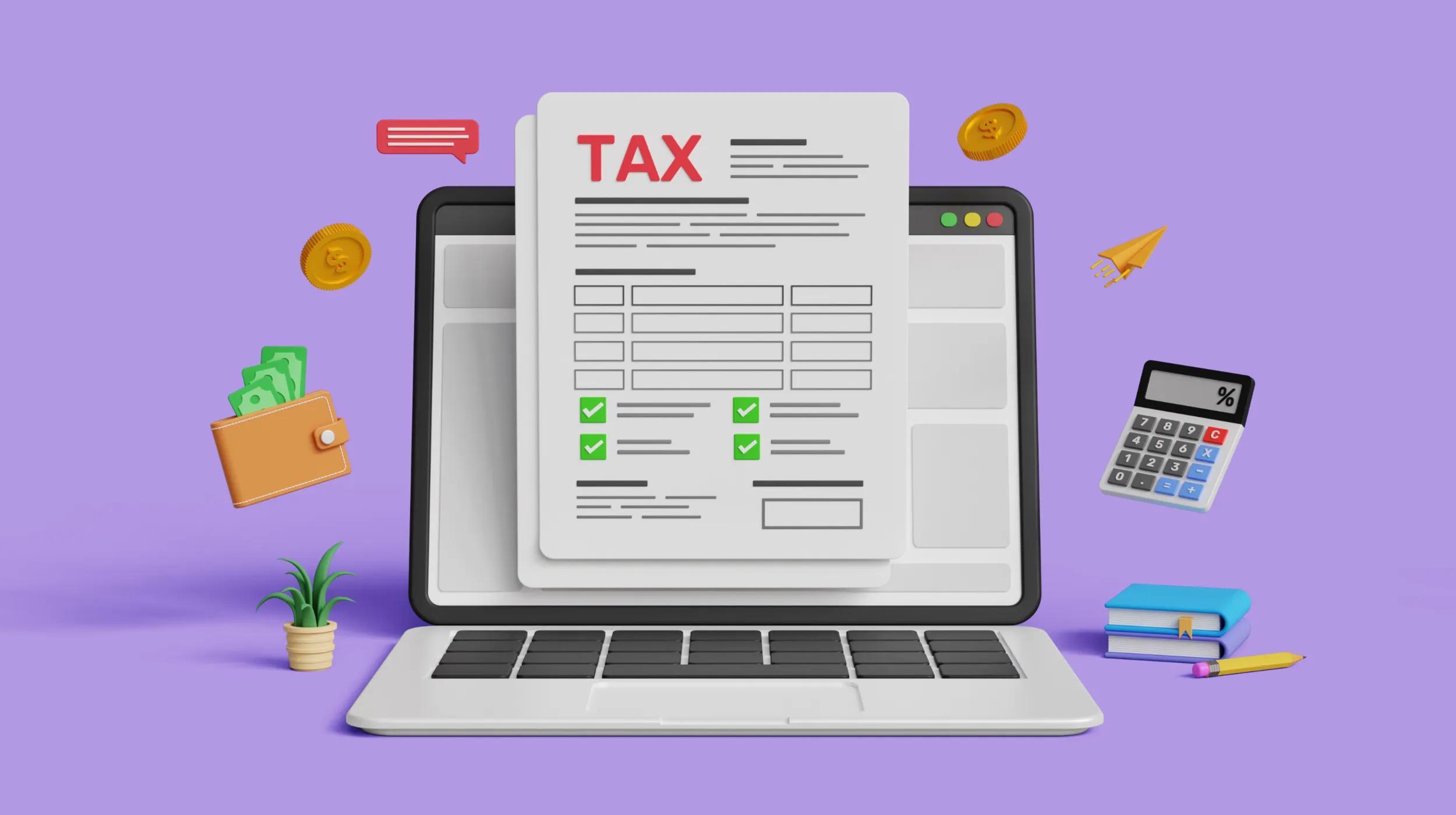If you’re running a business or handling taxes, you’ve probably come across terms like TIN and EIN. They’re both tax identification numbers, but they serve different purposes. And choosing the right one is more important than you might think.
So, what’s the difference between a Taxpayer Identification Number (TIN) and an Employer Identification Number (EIN)? And more importantly, which one do you actually need?
Let’s break it down.
Disclaimer: This content should not be construed as legal or tax advice. Always consult an attorney or tax professional regarding your specific legal or tax situation.
What is an EIN number (Employer Identification Number)?
Wondering what EIN stands for? Employer Identification Number (EIN) is a unique, nine-digit number assigned by the IRS to businesses for tax purposes. It’s similar to a Social Security number but it’s attached to your business rather than to you as an individual. It’s used to identify your company when filing taxes, opening a business bank account, or applying for loans.
You’ll need an EIN if your business has employees, operates as a corporation or partnership, or withholds taxes on income other than wages. Even if you’re a sole proprietor, having an EIN can make financial transactions easier and help separate personal and business finances.

You need an EIN if running an LLC or partnership-based business.
Related: How to start an LLC - Complete Guide
The EIN is also called a Federal Tax ID Number or FEIN (Federal Employer Identification Number). It’s free to obtain from the IRS, and once issued, it never expires.
If your business is hiring, expanding, or dealing with payroll, getting an EIN is a must.
What is a TIN number (Tax Identification Number)?
On the contrary, if you want to know what TIN stands for, we can answer that, too. Taxpayer Identification Number (TIN) is a unique identifier used by the IRS to track individuals and businesses for tax purposes. It’s an umbrella term that includes several types of tax IDs, including Social Security Numbers (SSN), EINs, and Individual Taxpayer Identification Numbers (ITIN).

Social Security is just one type of TIN.
Unlike an EIN, which is strictly for businesses, a TIN applies to both individuals and entities. If you file taxes in the U.S., you likely already have a TIN – it’s just a broad category that covers different tax IDs used for reporting and compliance.
The IRS issues TINs to ensure proper tax reporting, and banks, employers, and government agencies may require one for financial transactions. Whether you’re an individual taxpayer, a business owner, or a non-resident with U.S. tax obligations, your TIN is a key identifier in the tax system.
Difference between an EIN and a TIN
The main difference between EIN and TIN is that a TIN is a broad term that includes various tax ID numbers, while an EIN is a specific type of TIN assigned only to businesses. In other words, all EINs are TINs, but not all TINs are EINs.
A TIN can refer to an SSN, ITIN, EIN, or other tax ID numbers used for tax reporting. It applies to both individuals and businesses. An EIN, on the other hand, is exclusively for businesses, trusts, estates, and certain organizations needing a unique tax ID for employment and financial purposes.
If you’re filing taxes as an individual, your SSN serves as your TIN. But if you’re running a business, hiring employees, or handling payroll, you’ll need an EIN instead.
Similarities between an EIN and a TIN
The main similarity between an EIN vs TIN is that both are tax identification numbers issued by the IRS and are used for tax reporting purposes. They help individuals and businesses comply with federal tax laws and are required for financial transactions, such as filing tax returns or opening bank accounts.
Both EINs and TINs are unique nine-digit numbers assigned to taxpayers and serve as official identifiers recognized by the IRS. Additionally, banks, lenders, and government agencies often require either an EIN or a TIN for verification and compliance purposes.
While EINs are specifically for businesses and certain organizations, and TINs cover a broader range of entities, they aim to identify taxpayers within the U.S. tax system. No matter which one you have, it plays a key role in tax filing, record-keeping, and financial transactions.
When to use EIN or TIN
Whether you need an EIN vs TIN depends on your tax status and business activities. While both serve as tax identification numbers, they apply to different situations.
- Use a TIN if you're an individual taxpayer. If you file personal taxes, your Social Security Number serves as your TIN. If you're a non-U.S. resident without an SSN, you may need an Individual Taxpayer Identification Number (ITIN) instead.
- Use an EIN if you're a business entity. If you operate as a corporation, partnership, LLC with employees, or nonprofit, the IRS requires you to obtain an EIN for tax reporting, payroll, and business banking.
For example:
- A freelancer filing taxes with a Social Security Number only needs a TIN.
- A small business hiring employees must obtain an EIN.
- A sole proprietor with no employees can use their SSN as their TIN but may opt for an EIN for banking and credit purposes.
If you’re unsure, the IRS provides guidelines on when an EIN is required.
How to get a TIN or an EIN?
Getting a TIN vs EIN is a straightforward process, but they have different application methods. Here’s how you can obtain each one:
Getting a TIN
Your TIN can be an SSN, ITIN, or EIN, depending on your tax status. Here’s how to go about getting one:
- Social Security Number: U.S. citizens and permanent residents automatically receive an SSN when they apply with the Social Security Administration (SSA). Apply online at SSA.gov or visit a local SSA office.
- Individual Taxpayer Identification Number (ITIN): Non-residents or those ineligible for an SSN must apply for an ITIN using IRS Form W-7. Submit the form along with required identification documents to the IRS by mail, an IRS Taxpayer Assistance Center, or a certified acceptance agent.
Getting an EIN
Businesses, nonprofits, and entities that hire employees or operate as a corporation or partnership need an EIN. You can apply in the following ways:
- Online: This is the fastest option, and you can apply for free through the IRS website.
- Fax or mail: Complete Form SS-4 and send it to the IRS.
- International applicants: You can apply by calling the IRS directly.
Once assigned, an EIN never expires and remains tied to the business entity for its lifetime.
Which tax ID do you need for your business?
The right tax ID for your business depends on your structure, whether you have employees, and how you plan to handle taxes. Here’s a quick guide:
| Business Type | TIN or EIN? | Why? |
| Sole Proprietor (No Employees) | TIN (SSN or ITIN) | Can use a Social Security Number for tax purposes. An EIN is optional but useful for banking and credit. |
| Sole Proprietor (With Employees) | EIN | Required if hiring employees or filing payroll taxes. |
| Partnership | EIN | Needed for filing partnership tax returns and opening a business bank account. |
| LLC (Single-Member, No Employees) | TIN (SSN/ITIN) or EIN | Can use a TIN, but an EIN is recommended for banking and liability separation. |
| LLC (Multi-Member or With Employees) | EIN | Required for tax filings, payroll, and banking. |
| Corporation (C Corp or S Corp) | EIN | Mandatory for corporate tax reporting and compliance. |
| Nonprofit Organization | EIN | Required for tax-exempt status applications and financial operations. |
If you plan to hire employees, file business taxes separately, or open business credit accounts, an EIN is the right choice. However, if you're a sole proprietor with no employees, you may only need a TIN (SSN or ITIN).
Consult a tax professional or accountant before starting a business to ensure you're using the correct Tax ID for your specific business needs.
Other types of tax IDs
- Social Security Number (SSN): Issued by the Social Security Administration, this is the most common type of TIN used by U.S. citizens and permanent residents for personal tax filings and employment.
- Employer Identification Number (EIN): A unique tax ID issued by the IRS to businesses, nonprofits, and certain entities for tax reporting, payroll, and financial transactions. It is required for corporations, partnerships, and businesses with employees.
- Individual Taxpayer Identification Number (ITIN): Assigned by the IRS to individuals who are not eligible for an SSN, such as non-resident aliens, foreign investors, and dependents of U.S. taxpayers.
- Preparer Tax Identification Number (PTIN): Required for tax professionals who prepare federal tax returns for compensation. It ensures accountability and compliance with IRS regulations.
- Adoption Taxpayer Identification Number (ATIN): A temporary TIN issued to individuals in the process of adopting a child who does not yet have an SSN.
Each of these tax IDs serves a specific purpose and is essential for tax reporting and compliance with U.S. tax laws.
FAQs about EIN and TIN
Is TIN and EIN the same?
No, TIN (Taxpayer Identification Number) is a broad term that includes different tax IDs, like SSNs, ITINs, and EINs. An EIN (Employer Identification Number) is a specific type of TIN used exclusively for businesses and certain entities.
Can a business have both EIN and TIN?
Yes. An EIN is a type of TIN, so every business that has an EIN also technically has a TIN. However, sole proprietors without employees can use their SSN (a type of TIN) instead of an EIN in some cases.
Can I use my EIN instead of TIN?
It depends. If you’re a business, your EIN is your TIN for tax purposes. However, individuals filing personal taxes cannot use an EIN in place of an SSN or ITIN.
What happens if I use the wrong number?
Using the wrong tax ID on tax forms, business accounts, or payroll filings can lead to IRS penalties, processing delays, or rejected applications. If you realize an error, contact the IRS or relevant agency to correct it as soon as possible.






